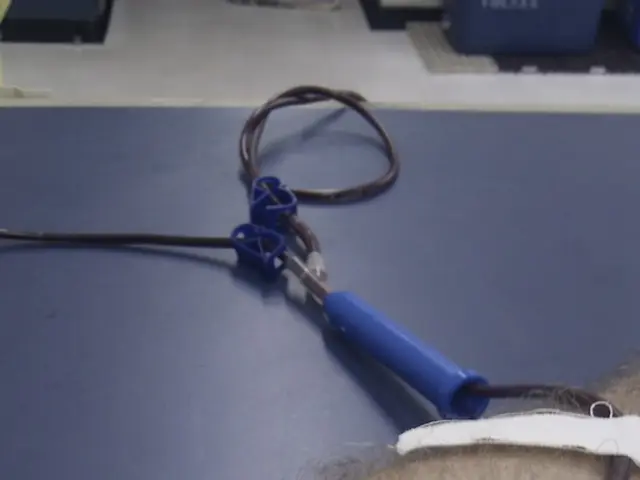Schools Implement CBSE's "Sugar Tracking Boards" as a Measure to Tackle Childhood Obesity and Diabetes
Central Board of Secondary Education (CBSE) Introduces 'Sugar Boards' in Schools as a Public Health Measure
New Delhi - In an attempt to combat the rising cases of diabetes and obesity among children, the Central Board of Secondary Education (CBSE) has directed approximately 24,000 affiliated schools across India to establish 'SugarBoards.'
These boards are aimed at providing essential information regarding recommended sugar intake, sugar content in commonly consumed foods, the associated health risks of high sugar consumption, and healthier dietary alternatives.
According to Dr. Naval Vikram, a Professor of Medicine at AIIMS, New Delhi, this initiative will educate children about the potential dangers of excessive sugar consumption, a significant contributor to childhood obesity and Type 2 diabetes. By prominently displaying recommended sugar intake and the sugar content in common foods, the boards aim to raise awareness and encourage healthier choices.
Additionally, the experts have highlighted that coupled with workshops and parental involvement, this approach has the potential to reshape dietary habits early in life, making it a timely and necessary public health measure.
Type 2 diabetes, once primarily an adult issue, has become increasingly common among children. The CBSE's decision to install these boards follows a letter to school principals attributing this trend, particularly prevalent in the last decade, to high sugar intake, largely due to the easy availability of sugary snacks, beverages, and processed foods within school environments.
The World Health Organization (WHO) recommends a reduced intake of added sugar throughout one's life, with adults and children advised to limit their intake of free sugars to less than 10% and preferably below 5% of their total energy intake, respectively.
Furthermore, studies indicate that sugar constitutes a substantial percentage of children's daily calorie intake, exceeding the recommended limit of 5%. The proliferation of sugary snacks, beverages, and processed foods in school environments contributes significantly to this excessive intake.
While the 'Sugar Boards' are a step towards reducing sugar consumption, several other measures have been suggested by health experts to combat childhood obesity and Type 2 diabetes effectively:
- Promoting physical activity through increased physical education and outdoor activities in schools
- Integrating nutrition education into the school curriculum
- Implementing healthy school canteen policies to restrict the availability of sugary and processed foods
- Encouraging parental involvement through workshops and seminars
- Conducting regular health check-ups in schools to monitor students' health
- Collaborating with local communities to expand the reach and impact of health initiatives.
These measures can create a comprehensive environment that encourages healthy lifestyles and reduces the risk of childhood obesity and Type 2 diabetes. Meanwhile, Dr. Arun Gupta, a pediatrician in New Delhi, suggests further measures such as regulation for warning labels and a ban on advertising of products High in Fat, Salt, and Sugar (HFSS). Additionally, Dr. Harsh Mahajan, the Chair-FICCI Health Services Committee, believes that early diagnosis and preventive measures are crucial, as lifestyle-related disorders are becoming common in children at increasingly younger ages.
- The new 'Sugar Boards' in schools, initiated by CBSE, provide information about recommended sugar consumption, sugar content in foods, and health risks, aiming to encourage healthier choices and combat Type 2 diabetes, a condition that has become common among children in India.
- Experts have proposed a mix of measures to combat childhood obesity and Type 2 diabetes effectively, including promoting fitness and exercise, integrating nutrition education, implementing healthy school canteen policies, encouraging parental involvement, conducting regular health checks, and collaborating with local communities.
- Studies show that a significant percentage of children's daily calorie intake comes from sugar, often exceeding the recommended limit of 5%. The easy availability of sugary snacks, beverages, and processed foods within school environments contributes to this excessive intake.
- In addition to the installation of 'Sugar Boards', health experts suggest further measures like regulation for warning labels and a ban on advertising High in Fat, Salt, and Sugar (HFSS) products to reduce sugar intake and promote healthier lifestyles among children.
- Early diagnosis and preventive measures, as suggested by Dr. Harsh Mahajan, are crucial, as lifestyle-related disorders like Type 2 diabetes are becoming common in children at increasingly younger ages. Encouraging mental health awareness and good nutrition, along with physical fitness, is essential as part of a holistic approach to health and wellness.








